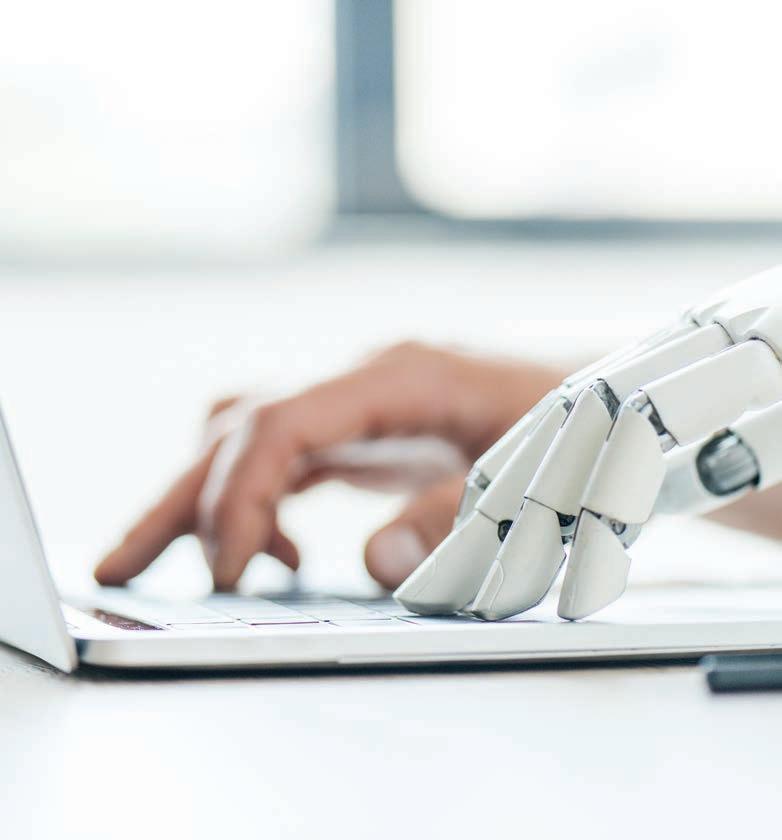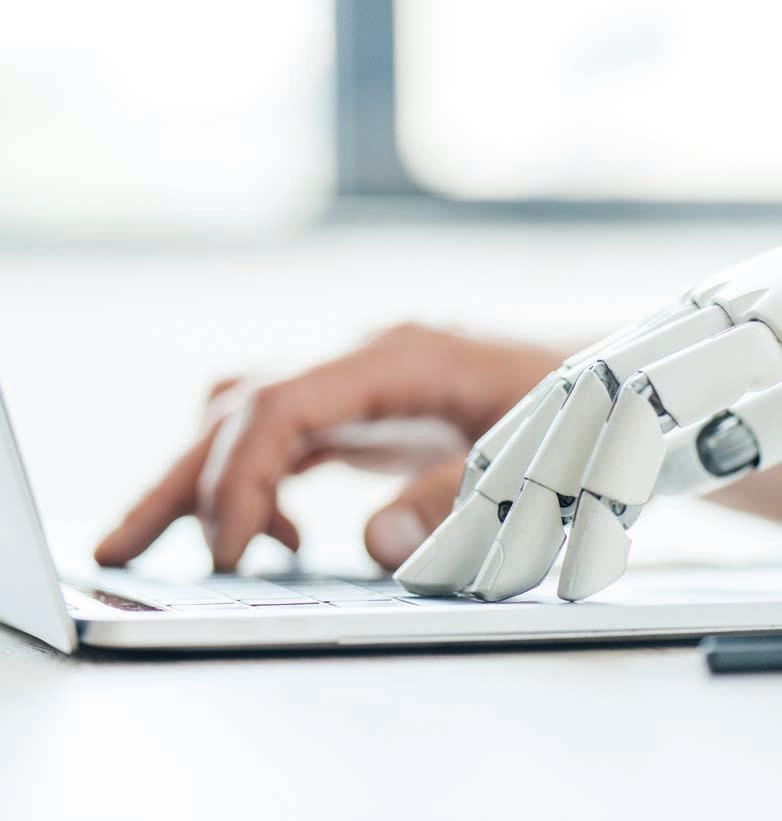
2 minute read
Features
The future
work of Attempting to predict how technology will impact an industry is a difficult but important exercise. By Allan Janssen

On the surface, the auto parts distribution industry seems well insulated from automation. After all, auto parts will continue to be recommended, picked, and shipped to repair shops for the foreseeable future… and that won’t be done by robots anytime soon.
But as technology advances, it’s clear that traditional jobs will evolve in a variety of ways, some subtle, some not so subtle.
The Diversity Institute, part of the Ted Rogers School of Management, has identified more than 1,400 reports published in the past 10 years that weigh in on the topic of the future of work. And while the jury is still out on just how vulnerable workers are to automation, there can be no doubt that change is coming.
Policy Horizons Canada, a forecasting group within the federal government, has recently summarized five plausible scenarios that will bring new challenges and opportunities to the Canadian workplace.
Some of these “game-changers” are likely to impact the jobber world more than others.
1. The unbundling of jobs The theory is that human work will steadily move from long-term to task-based. A graphic representation of this transition might show people moving steadily from careers to full-time work, to part-time work, contract work, project work, tasks, hybrid-tasks, and ultimately to no tasks at all in a world of full automation.
2. The erosion of people jobs Even if this “unbundling” of jobs into distinct tasks doesn’t occur quickly, it is likely that artificial intelligence and machine automation will steal tasks away from workers to make people increasingly expendable. As technology chips away at the human workforce, we could see the rise of “centaur work” the hybrid of human and machine interaction.
3. A.I. supplements knowledge And here we start to see how jobbers could be impacted by technology. Jobber stores are, after all, part of the knowledge economy. The expertise that good counterpersons bring to the job is already being augmented by smarter computer systems. We will soon get to a point where artificial intelligence learns from the cognitive labour force, supplements their knowledge, and ultimately replaces them.
4. Technology assumes transactional control As the world grows more accustomed to machine influence in the workplace, the value of human intermediaries who provide trust and security will decline. Any job that primarily involves facilitating agreements between humans could be at risk. It’s hard not to think of jobber stores as a place where human transactions are facilitated.
5. Decentralization People may not work and earn where they live and spend. We have already started to see the rise of remote working. At some point this will accelerate, bringing with it a host of sociological, governmental, and economic implications.
No one can predict the future. But reading technology trends, and extrapolating potential scenarios helps prepare industries for the challenges and opportunities ahead. The authors of Understanding the Future of Skills have identified five key impacts that industries should consider as they weigh their future in the digital age. They recommend we prepare for a decline in routine work; the unbundling of tasks; a greater need for human adaptability; a premium on teaching individuals how to work with technology; and an increased emphasis on hard-to-automate skills.
The jobber world may not be easily replaced but preparing for an automated future makes a great deal of sense.










